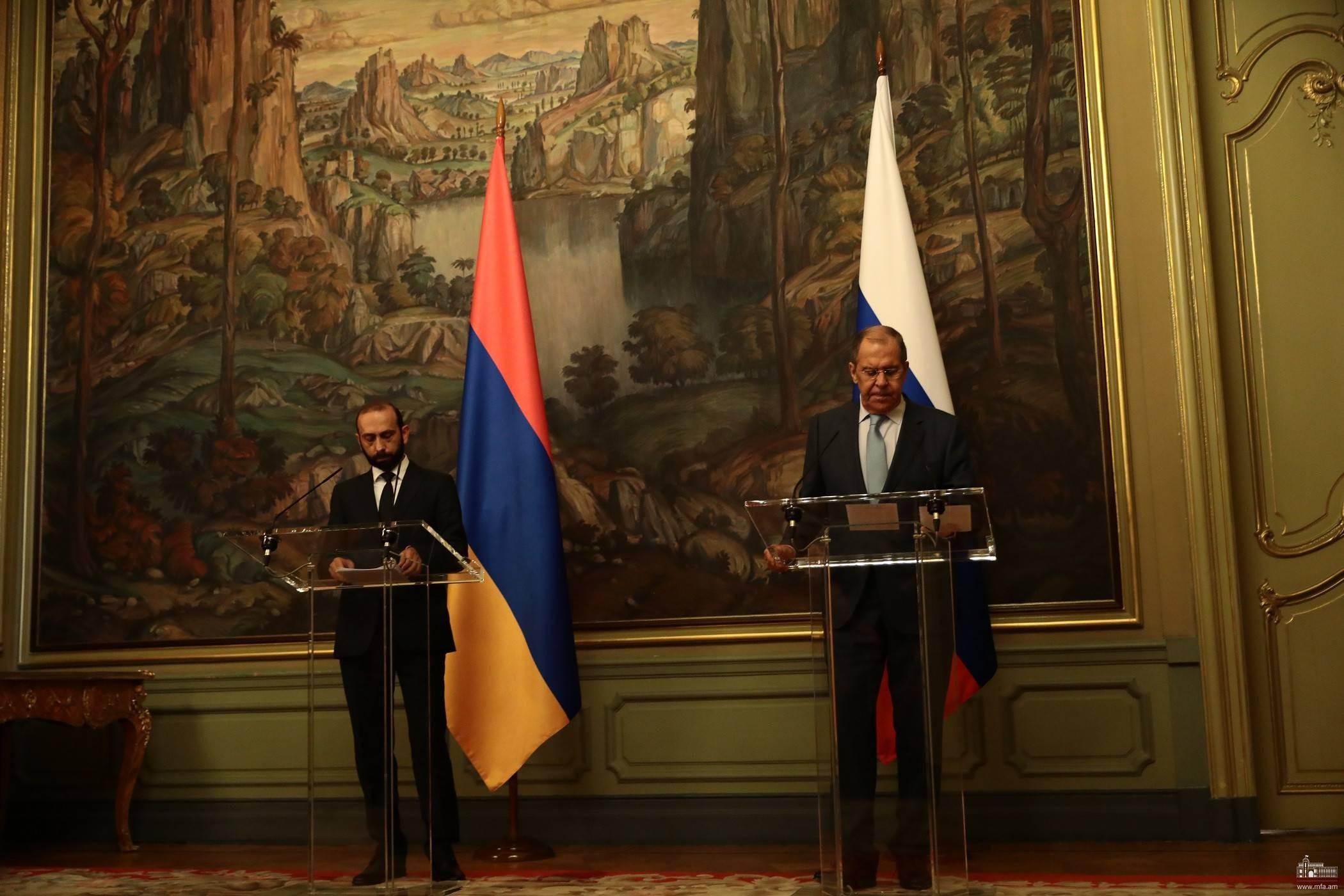
Lavrov's Misstatement on Armenian POWs: Armenian Foreign Minister Indirectly Accuses Moscow of Inaction
On August 31, in Moscow, newly appointed Armenian Minister of Foreign Affairs Ararat Mirzoyan, met with Russian Minister of Foreign Affairs Sergey Lavrov. This was Mirzoyan's first round of negotiations as Foreign Minister. The meeting was followed by a joint press conference, the focus of which was the status of Armenian POWs held in Baku.
Lavrov, in his speech, indirectly defended Baku, noting that Azerbaijan had fulfilled its obligation to return the captives it held as of November 9.
"If we are clear, the November 9 document was about the prisoners of war who were in captivity at that time. Today, Azeris are holding groups of Armenian prisoners of war who arrived there in late November, after the November 9 declaration came into force. An agreement has been reached to cease all hostilities," Lavrov said, calling on Baku to release the remaining captives.
Here, Lavrov is wrong about at least two prisoners. Alyosha Khosrovyan (captured on October 3, 2020) and Ludwig Mkrtchyan (captured on October 20, 2020) were taken prisoner during the war. This fact was also confirmed by Baku, when in June-August the fake cases of Armenian captives were being tried in Azerbaijan.
Russia, Armenia’s main strategic ally, is not insisting that Azerbaijan return the captives and only issues calls to do so, thereby indirectly strengthening Azerbaijan’s position in future possible negotiations. Baku sees that its actions go unpunished and continues to pursue a well-designed offensive policy.
Answering a question about the captives, Ararat Mirzoyan said that Armenia has long fulfilled its obligations on this issue ․
“Armenia has released and returned to Azerbaijan all the prisoners of war of Azerbaijan on the all for all principle. We believe, as Minister Lavrov has already said, that Azerbaijan should return all Armenian prisoners of war and other detainees, not only in fulfillment of the provisions undertaken by it in the November 9 statement, but also to create an atmosphere of mutual trust. It is possible to start further discussions on the final settlement of all issues.”
Mirzoyan thus concedes that the precondition for Armenia entering the main stage of negotiations is the return of the Armenian captives. Accusing Azerbaijan of non-fulfillment of its November 9 obligations, Mirzoyan is first directing blame at Russia, since the main responsible party for the implementation of the points of the statement is Moscow, who is failing to follow up on the implementation of the points of the trilateral statement.
In Mirzoyan's words, the following thought is also worrying. "And in that mood, we can start further discussions on the final settlement of all issues."
What does the final settlement of all issues mean? Does this mean demarcation/delineation, handing over of maps of minefields or recognition of the territorial integrity of Azerbaijan? Armenia would do well to clarify what it is negotiating about.
In any case, one fact can be recorded.
Armenian Foreign Minister Mirzoyan has declared that Yerevan has not given up on the issue of Artsakh's status as a precondition for negotiations.
"At this stage, there are no negotiations on a peace agreement. If such talks ever start, they must include the status of Nagorno Karabakh, based on the principles already established by the Minsk Group Co-Chairs," Mirzoyan said.
Mirzoyan reaffirmed this declaration in an interview with RIA Novosti. In fact, it is very significant to make such a statement in Moscow, because it is no secret that Russia is the "chief arbiter" of the Armenian-Azerbaijani conflict.
What remains is to understand what approach Russia has adopted in this regard after the war. The other Minsk Group Co-Chair countries claim that the conflict is not over and that the issue of Artsakh's status remains uncertain.
However, they do not say how it will be solved. The only solution is for Armenia to adopt a pro-active foreign policy and to hold continuous talks with the co-chair countries so that the issue of Artsakh’s status is not removed from the negotiations’ agenda.
Photo by Armenian Ministry of Foreign Affairs
 Videos
Videos Photos
Photos
Comments (2)
Write a comment